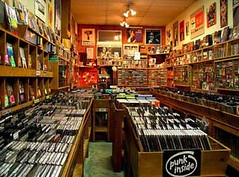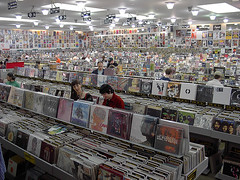The Paradox Of Music: Why More Is Less
May 12th. That's the day that I published my first thoughts on how choice theory and the ideas of Psychologist Barry Schwartz could be applied to the current state of digital music. Nearly four months later, I'm proud to say that I followed my curiosity to it's end and was able to write three essays on the subject; ones that I hope you enjoyed. Of all the intellectual easter egg hunts that I've immersed myself in, I am the most proud of these results. I can't say that I 100% agree with my own conclusions, but I reported, to the best of my abilities, how the research and my experiences aligned. In case you missed these essays, here they are:
The Record Store: The Paradox of Music: Is More, Really Less?
The Web: Paradox or Paradise: Music Choice in the Digital Age
The iPod: Savor Your Music: The Effect of Abundance in Culture


You interns gettin’ paid by the word or what??
We’re in the Twitter age – give it to us in 140 characters.
I might not buy more music if anybody released more music, but if my favourite artists released new albums more often, I’d buy from them more often. I guess this is a time when increased output can lead to increasing sales.
But marketing advisors usually tell a different story than music fans: they advise labels and indie artists to take their time building momentum for a bigger level release. Hence, major label artists put out an album every 4 years these days at the largest – and indie artists who finance their production costs themselves cannot be quicker because of the time it takes to fund the next album. And as the recorded music business struggles, these time spans get even longer. At the time of writing, maybe it’s up to 6 years.
On the other hand, if an artist has put out more albums (read: different songs) in a shorter time span, they will have more catalogue to sell and as their audience grows, they will make more money than somebody who wastes money on big advertising campaigns chasing the elusive “big hit” that doesn’t come because people prefer to watch a well-known song (from an album which sounds too commercial and boring to be interesting) on youtube for free.
Hello, good gallery.
———————————————
The Paradise or Paradox link isn’t working for me 🙁